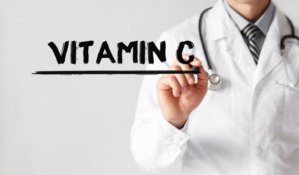Vitamin C can reduce the number of days spent in intensive care
 Intensive care units in hospitals offer treatment for critically ill patients, who are monitored and receive specialist care around the clock. It goes without saying that this type of medical attention is associated with both suffering and comes with a huge price tag. A whole new meta-analysis has shown that vitamin C supplementation is an inexpensive way to shorten the duration of intensive care hospitalization by eight percent. The reason is that vitamin C has a host of important functions in the body, including an ability to speed up the healing process.
Intensive care units in hospitals offer treatment for critically ill patients, who are monitored and receive specialist care around the clock. It goes without saying that this type of medical attention is associated with both suffering and comes with a huge price tag. A whole new meta-analysis has shown that vitamin C supplementation is an inexpensive way to shorten the duration of intensive care hospitalization by eight percent. The reason is that vitamin C has a host of important functions in the body, including an ability to speed up the healing process.
Doctors Harri Hemilä from Helsinki University in Finland and Elizabeth Chalker from the University of Sidney in Australia have found statistically strong evidence that higher intake of vitamin C can shorten the duration of intensive care hospitalization by as much as eight per cent, according to an article in the science journal Nutrients.
There can be countless reasons why people end up in intensive care, for instance heart failure, stroke, surgery, serious burns, grave infections, and chronic or terminal illness. It appears that our need for vitamin C goes up when we are exposed to physical traumas and certain diseases.
Vitamin C’s many functions
Vitamin C is a water-soluble nutrient, and because we are unable to store it in the body, we need to get the vitamin every single day. Vitamin C has a long list of complicated functions in the body and is essential for things like:
- Energy turnover
- Collagen synthesis
- Healing processes
- The immune system
- The nervous system
- Antioxidant (protects cells against oxidative stress)
- Cardiovascular functions
- Blood pressure
Controlled studies have shown that vitamin C can:
- Shorten the duration of the common cold
- Lower blood sugar levels in type 2 diabetics
- Lower blood pressure
- Reopen collapsed lungs
- Lower the rate of atrial fibrillation
The need for vitamin C is heavily increased by critical conditions
Infections, surgery, burns, and other types of physiological stress may cause a sudden drop in blood level of vitamin C because of the many different ways in which vitamin C takes part in metabolic processes. Because of this, hospital patients often have very low levels of vitamin C in their blood.
In order to maintain the same blood level of vitamin C as you find in healthy individuals, a critically ill person must consume around four grams of vitamin C daily. This is nearly 50 times more than the official recommendation for adults.
| A critically ill person needs around four grams of vitamin C daily to maintain normal blood levels of the nutrient. |
Vitamin C supplements can shorten the duration of intensive care hospitalization
Because it is already known that vitamin C has a number of physiological functions in the body, and because diseased people have an increased need for the nutrient, Doctors Harri Hemilä and Elizabeth Chalker set out to investigate how vitamin C affects the number of days that a patient needs to spend in intensive care. The two researchers studied databases of relevant published studies and managed to find 18 controlled studies with a total of 2,004 patients. 13 of the studies dealt with heart surgery patients.
A complete analysis of 12 of the studies with a total of 1,766 patients demonstrated that vitamin C supplementation reduced the time spent in intensive care by 7.8 percent on average. An analysis of six of the studies showed that patients, who got one to three grams of vitamin C daily spent on average 8.6 percent less time in intensive care.
In three of the studies, the intensive care unit patients had required over 24 hours on life support. An analysis of their data showed that vitamin C supplementation lowered their need for life support by 18.2 percent.
Because vitamin C is very inexpensive and is even able to reduce the duration of intensive care hospitalization by eight percent, the scientists found that it was worth taking a closer look at the nutrient, especially because this cheap and simple intervention may have health benefits and the potential to lower health care expenditure.
Animals can produce their own vitamin C, but humans have lost that abilityVitamin C is also known as ascorbic acid. Most animals are able to produce vitamin C by means of a stepwise enzymatic conversion of glucose, but humans, apes, and certain other animal species have lost this ability through evolution. When animals become stressed, they can step up their vitamin C synthesis accordingly. Humans, however, need to get the vitamin from external sources. |
Vitamin C in food and supplements
It is advisable to eat a daily diet that is rich in vitamin C, because that way you also get other important nutrients. Fruit berries, red bell pepper, broccoli, parsley, and many other vegetables and herbs are good sources of vitamin C. When buying supplements, it is generally a good idea to choose non-acidic products that are gentle towards the stomach. A supplement containing 500-750 mg of vitamin C contains about the same amount of vitamin C as 6-8 oranges or 80-120 apples (depending on their size).
References
Harri Hemila and Elizabeth Chalker. Vitamin C Can Shorten Length of Stay in the ICU: A Meta-Analysis. Nutrients 2019
https://en.wikipedia.org/wiki/Vitamin_C
https://frida.fooddata.dk/food/lists/parameters/47?#parameter47
Search for more information...
- Created on .








